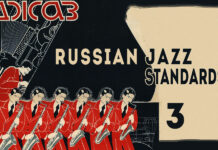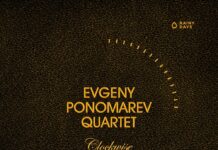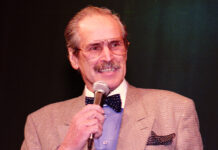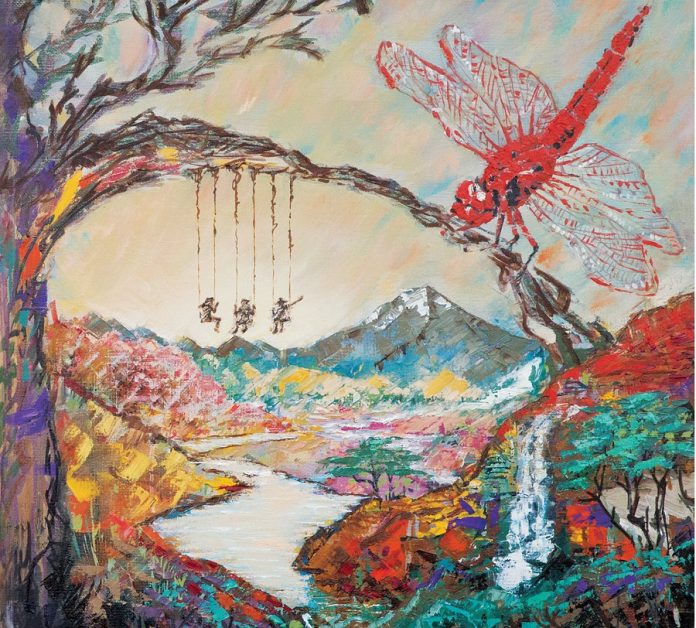
by Cyril Moshkow
What happens when a Russian modern jazz trio travels to Japan for a concert tour, and returns home overloaded with impressions? What happens when they encounter the overwhelming Japanese urban civilization for the first time, even if they have rich experience of living in Europe’s and North America’s biggest megalopolises: Moscow and New York City? What happens when the artists who grew up on the crossroads between American jazz, modern European instrumental music, and Russian classical music tradition, immerse—however for a brief time—into a music environment where all this is also present, but in a form of a fusion with local, millennium-old culture?
This is what happens: “Urban Dreamer,” the latest studio album recorded by LRK Trio, Russia’s hottest jazz export since the mid-2010s.
Their Russian fans have no problem calling them by their last names, the Lebedev-Revnyuk-Kravtsov Trio; but yes, the last names of pianist Evgeny Lebedev, bassist Anton Revnyuk, and drummer Ignat Kravtsov can be a killer for those with little or no knowledge of Russian, one of the most complex languages on the world. That’s why they settled with the abbreviation of their names as their band’s name.
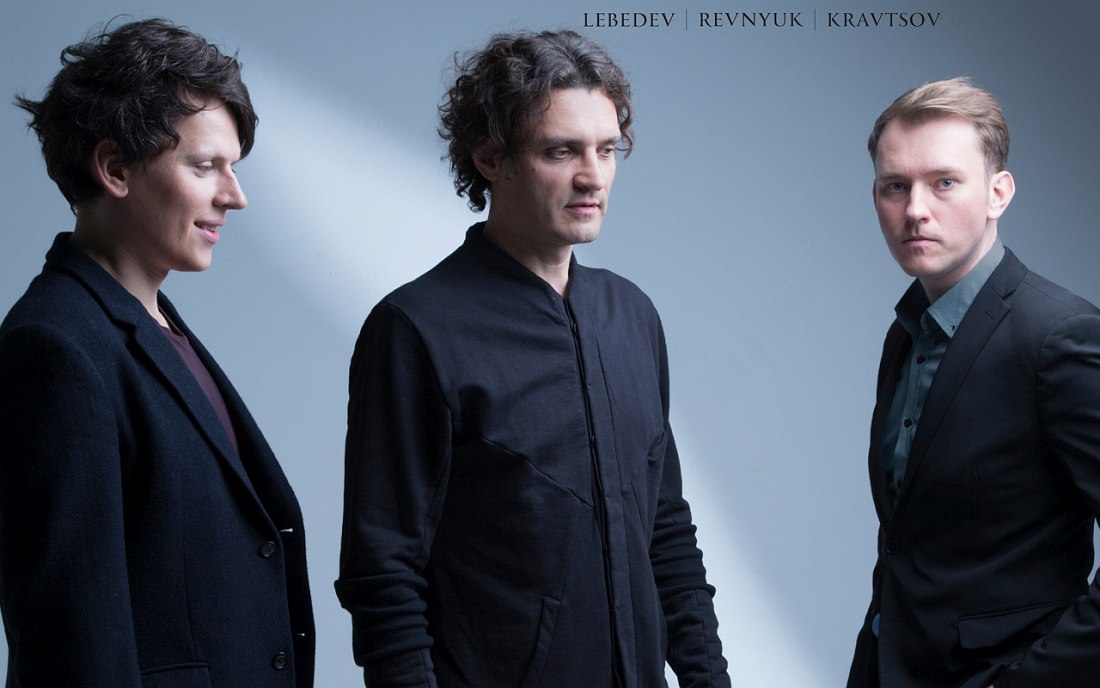
They emerged in 2015, each with a rich musical background of a career of his own, to quickly become their home country’s most talked-about new jazz outlet. They were quick to override—or, at least, to neglect—the decades-old prejudice, common among the Russian “jazz police” (or, for that matter, among any other jazz police): that modern jazz must still be American jazz, faithfully reproduced worldwide in its canonized version from the 1960s by adepts, who dare not to add anything that speaks about their local identities, backgrounds, or experience. The LRK Trio played all around Russia, toured several European countries, performed in the U.S. and the U.K., and in 2017, they toured Japan—which led not only to a live album, “Lost in Tokyo” (limited Japanese edition, 2017,) but also to the creation of this, altogether new, studio album, which summed up their experience of encountering the Japanese culture in its modern, urban, or should I say meta-urban form.
httpv://www.youtube.com/watch?v=MgAzJzKqOAM
The album represents two overlapping moods: one is more illustrative, representing the three Russians’ journey through Japan by an overwhelming array of composed textures, prearranged contrasting episodes, and generously virtuosic improvised solos; the other more introspective and lyrical, unleashing the melodic gift of all three trio members in both composition (they all contributed a few tunes each) and improvisation, when it comes to pitched instruments such as Lebedev’s piano, keyboards, and accordion, and Revnyuk’s various basses. Several times throughout the album additional composing means are amplifying the overall richness of textures: timbres and textures are added, sometimes to an astounding effect, such as Varvara Revnyuk‘s instrumental singing overdubbing the tricky Lebedev’s piano lines in Anton Revnyuk’s “Clockwork Doll,” Nikolay Solonovich‘s dramatic cello episode in Kravtsov’s “Abyss,” or saxophonist Konstantin Safyanov‘s surprisingly elaborated whistling in the intro for the same composer’s “Joy.” The only other time the human sounds are used (not counting the animated chatter in rapid Japanese in the background of the album’s centerpiece, “Lost in Tokyo,” where the composing credits are shared by Lebedev and Revnyuk,) is the voice of the prominent American jazz vocalist, JD Walter, who sings a few verses in another Revnyuk/Lebedev’s shared effort, “Thoughts Of…” which provides both drama and an additional verbal dimension for the album.
httpv://www.youtube.com/watch?v=lGbMWqNniag
The album concludes with an instrumental version of “Akatombo,” the Japanese song composed by Kosaku Yamada in 1927, which, by the end of the last century, was among the most loved art songs in Japan. The song itself is a fusion of Japanese and Western elements, as the pentatonic scale used by Yamada is at the same time the Japanese yonanuki mode and the European major scale without fourth and seventh steps, not unlike the one used in 1853 by German composer Robert Schumann in one of the main themes of his Introduction and Allegro, Op.134 (and there is a direct likeness of the “Akatombo” melody and the Schumann theme.) All of it is played by LRK Trio as modern jazz, with little or no stylization towards Oriental music, but with a totally conscious awareness of the artists’ own backgrounds.
httpv://www.youtube.com/watch?v=C1fT5SZ4Evk
Surprisingly enough, the only sonic element that roughly winks at some “Oriental” flavor in this track is not played by LRK Trio members: it is the pedal steel guitar that overdubs part of the theme—played by Bosse “Bo” Savik, the sound engineer who mixed and mastered at his studio in Sweden the LRK Trio material recorded by Yakov Zakhvatkin and Andrei Levin at Moscow’s best recording studios: CineLab and Mosfilm. The story went full circle: Japanese, Russian, American, and European elements fused themselves in an inseparable unity.
ITUNES/APPLE MUSIC | GOOGLE PLAY | LOSEN RECORDS

